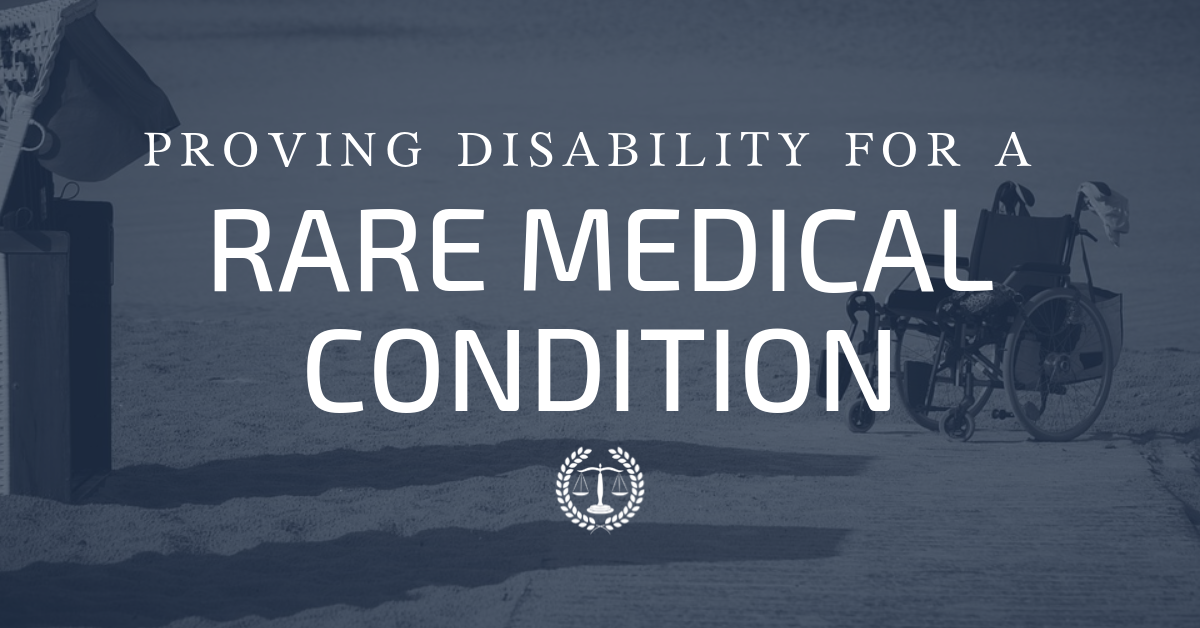Just because your medical condition is rare does not mean that SSDI (Social Security Disability Insurance) is unavailable for it. If the condition is severe enough and if the pain is severe enough, you may be eligible for SSDI benefits if your condition prevents you from being able to engage in “gainful employment.” When it comes to proving your disability you need to be able to show that the rare medical condition keeps you from being able to work. Working alongside the skilled attorneys at Mestayer Law Firm will help in your efforts to proving your disability. Keep reading as we discuss deeper the subject of how to prove disability for a rare medical condition.
Rare Medical Condition Doesn’t Equal Disqualifying SSDI Benefits
As we stated earlier, just because the condition you suffer from is rare doesn’t mean that SSDI benefits can’t be awarded. Federal regulations, in the case of evaluating whether disability benefits are able to be awarded, the Social Security Administration must evaluate evidence by following five criteria:
- Is the individual performing substantial gainful activity?
- Does the individual have a severe impairment?
- Does the individual have a severe impairment that meets or equals an impairment listed on the list of impairments?
- Can the individual perform their past relevant work?
- Based on their age, education and work experience, can the individual perform other work of the sort found in the national economy?
There are times when an individual may suffer from a rare medical condition that is not listed on the Social Security Administration’s List of Impairments. In this scenario, medical evidence can be provided in order to show the rare medical condition and how it “meets or equals” impairments on the list.
Severe Pain & Disability
If severe pain is associated with your condition, this may be the disabling aspect. For pain to be disabling, an underlying medical condition must be proven from which it can be further shown, by medical evidence, that your condition causes you to suffer from a severe amount of pain. In addition to the medical evidence, the individual must actually be suffering from that amount of pain. The Social Security Administration will look at the following evidence:
- A testimony from the claimant about the pain they are feeling
- The individuals medical records
- Reports and testimonies from their doctor
- Reports and testimonies from vocational experts
- Any other material deemed relevant
Mestayer Law Firm provides civil litigation for clients throughout the Gulf Coast area including Pascagoula, Biloxi, and Gulfport. If you are making future plans for your estate, then contact us today and let us help take care of every detail of your finances. Call us today at 228-762-1193 or visit www.pascagoulalaw.com. We are your legal experts! You can also visit our office located at 2128 Ingalls Ave. in Pascagoula, Mississippi. We look forward to talking with you!
No representation is made that the quality of the legal services to be performed is greater than the quality of legal services performed by other lawyers.
This article does not create an attorney-client relationship. I am licensed to practice law in Mississippi and have based the information presented on US laws. This article is legal information and is for entertainment and informational purposes only and should not be seen as legal advice. You should consult with an attorney before you rely on this information. Any information provided in this blog is accurate and true to the best of my knowledge, but that there may be omissions, errors, or mistakes.
© Hummingbird and South 2022: Reproduction without explicit permission is prohibited. All Rights Reserved. “We Put You Online So You Don’t Get Left Behind.”

